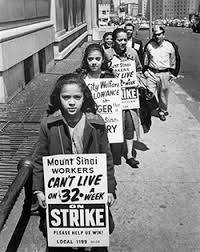### 1967: A Year of Social Change, Political Upheaval, and Cultural Revolution
The year 1967 was a pivotal period in global history, marked by significant events that shaped politics, society, culture, and international relations. From civil rights advancements to geopolitical conflicts and cultural revolutions, 1967 left an indelible mark on the world stage.
#### Politics and World Events
One of the defining events of 1967 was the Six-Day War, a brief but decisive conflict between Israel and its neighboring Arab states of Egypt, Jordan, and Syria. The war, which began on June 5th, resulted in a swift Israeli victory and territorial gains, including the capture of East Jerusalem, the West Bank, the Gaza Strip, and the Golan Heights. The Six-Day War reshaped the geopolitical landscape of the Middle East, exacerbating tensions and laying the foundation for future conflicts and peace negotiations in the region.
In the United States, 1967 was marked by ongoing protests and demonstrations against the Vietnam War. The anti-war movement gained momentum as public opposition to U.S. military involvement in Southeast Asia grew. The year saw large-scale protests, including the March on the Pentagon in October, where thousands of demonstrators converged to demand an end to the war and call for peace.
#### Civil Rights and Social Movements
In the realm of civil rights, 1967 was a significant year for African American activism and social justice. In Detroit, Michigan, the summer of 1967 witnessed a series of racially charged riots and civil disturbances, known as the Detroit Rebellion or Detroit Riots. The unrest highlighted long-standing grievances over police brutality, unemployment, and systemic racism in northern cities, prompting calls for urban reform and economic equality.
#### Cultural and Social Changes
Culturally, 1967 was a time of artistic experimentation and cultural revolution. In music, the "Summer of Love" in San Francisco became a symbol of the counterculture movement, with thousands of young people converging in Haight-Ashbury to celebrate peace, love, and artistic expression. The psychedelic rock music of bands like The Beatles, The Rolling Stones, and The Doors captured the spirit of the era, while the Monterey Pop Festival showcased groundbreaking performances by Jimi Hendrix, Janis Joplin, and other influential artists.
In literature, Gabriel Garcia Marquez's landmark novel "One Hundred Years of Solitude" was published in Spanish, weaving a rich tapestry of magical realism and political allegory to explore Latin American history and identity. Marquez's masterpiece earned international acclaim and solidified his reputation as a literary giant of the 20th century.
#### Sports and Entertainment
In sports, the 1967 AFL-NFL World Championship Game, later known as Super Bowl I, marked the inaugural showdown between the American Football League (AFL) and the National Football League (NFL) champions. The Green Bay Packers, led by quarterback Bart Starr, defeated the Kansas City Chiefs to win the first Super Bowl title in front of a nationwide television audience, setting the stage for the growth of American football as a cultural phenomenon.
#### Conclusion
In conclusion, 1967 was a year of social change, political upheaval, and cultural revolution that defined the spirit of the 1960s. The Six-Day War reshaped the Middle East, while protests against the Vietnam War and civil rights struggles in the United States underscored challenges to authority and calls for justice. The cultural vibrancy of the "Summer of Love" and artistic innovations in literature and music reflected a desire for freedom, expression, and social transformation. The events of 1967 continue to resonate in our understanding of modern history, illustrating the interconnectedness of politics, society, culture, and sports in shaping the contemporary world.




No comments yet
Be the first to share your thoughts!